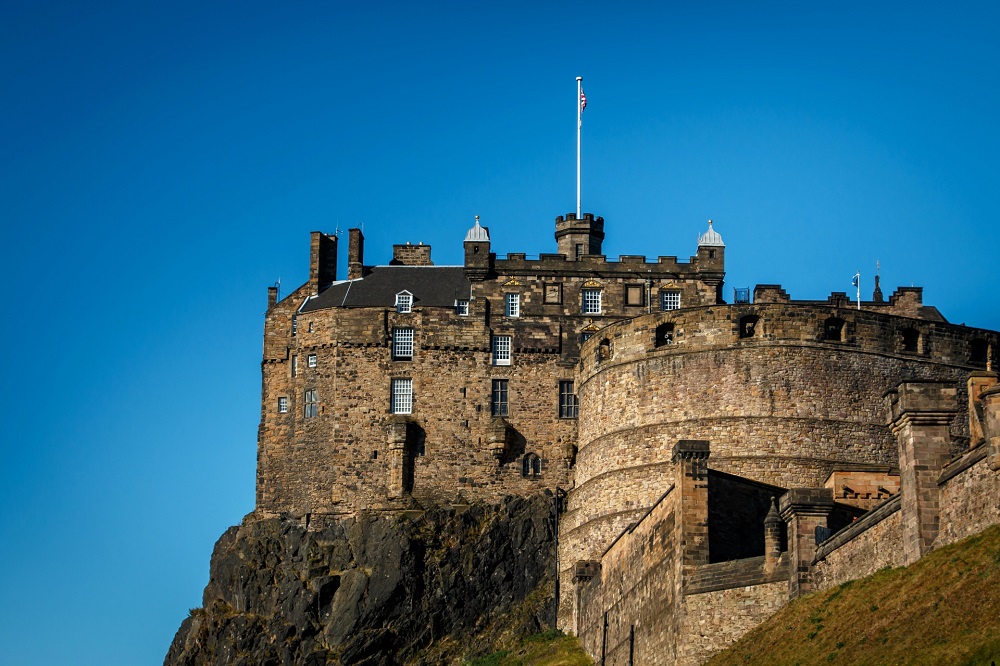Scotland can teach Wales a thing or two about selling its own culture and history

Ifan Morgan Jones
I’ve just spent a week in Edinburgh and Glasgow, on a holiday visiting family.
Edinburgh, in particular, is one of my favourite cities in the world (this was my fourth visit, and I’ve even run the marathon twice).
There’s something intoxicating about the mix of architecture, the depth of history there, and the intellectual tradition.
I’m not a city person – apart from a three-year stint at Cardiff University, I’ve always preferred to live in town or country – but Edinburgh is one of the few large cities where I could live quite contentedly.
Part of the appeal of Edinburgh is also of course that I’m a bit of a political anorak and study nationalism and devolution from an academic perspective.
It is always interesting therefore to compare and contrast the approaches of the two countries, who are both in the process of building themselves up to full nationhood.
One thing in particular that always strikes me about Scotland, in comparison to Wales, is how visible their national culture is. It is almost impossible to be there without being aware that you’re in a different country.
Wales has a national culture that is just as deep, unique and meaningful. But because it is a mostly verbal or written culture you could visit Wales (or even live here) and not be particularly aware of it.
Yes, some of Scotland’s national veneer is rather shallow, based on invented kitsch; kilts weren’t worn until a few centuries ago, the Loch Ness monster doesn’t exist, etc etc.
But the country makes the most of its real history, too. Every ruined castle, every pub, every graveyard, takes ownership of its own history, puts it front and centre and takes maximum advantage of it as its own unique selling point.
The result speak for themselves. Take Edinburgh, where thousands of visitors throng the Royal Mile, and most of the surrounding streets.
This is a plot of earth with no more going for it, history wise, than the Maes in Caernarfon or Cardiff Bay. It is the difference of approach that has worked wonders.
Scotland takes for granted that people who are in Scotland want to experience Scottish history and culture. They make no apologies for it. It is shoved under your nose.
Compare with Wales. Can you believe that amongst all the shiny pubs and restaurants of Cardiff Bay there isn’t a proper museum telling the story of what was at one point the engine room of the industrial revolution?
In fact, much of what remains from that period in its history has been removed. The future of the Coal Exchange, one of Wales’ most historical buildings, has hung in the balance for years.
Caernarfon Castle is just as imposing as Edinburgh Castle, but I keep coming across international students at Bangor down the road who have never visited and are only vaguely aware that it’s there.
Enticing them down there, so they can instagram and weibo pictures of the castle to friends and family around the world, should be a priority for both Visit Wales and Caernarfon itself.
Any tourist board worth its salt would be heavily promoting the history of Wales’ plucky Welsh rebels and their battle against the Goliath-like force of the Normans.
Everyone who visits Scotland gets to know about Culloden and other famous battles. How many in Wales could name a single similar site?
In comparison to the Scots, we seem to be a nation embarrassed by our own distinctive history. Our own people, let alone those visiting from another country, are largely clueless about it.
In fact, as the recent Iron Ring and Prince of Wales bridge debacle suggest, our political leaders more comfortable piggybacking on England’s history and culture than trying to sell our own.
We seem to be so wedded to the delusion, formed during the British Empire, that to be wealthy we must embrace everything English that we’re missing the appeal of our own distinctive culture.
There’s no point selling England’s history to the English – you might as well sell coal to Flint. There’s no point selling England’s history abroad either as they’ll go to London, York or Bath instead.
People come to Wales to find out about Wales, and they’ll pay good money for the experience. But we aren’t giving it to them.
Our culture cringe has become a ball and chain draggings us down as a nation.
Tourism isn’t the be all and end all, of course. Scotland, and Wales, have much more going for them than that.
But if Scotland is any guide, knowing and taking pride in your own history is a first step towards national ambition if other fields as well, including industry, education, and politics.
And that’s certainly something Wales could do with a dram of right now.
Support our Nation today
For the price of a cup of coffee a month you can help us create an independent, not-for-profit, national news service for the people of Wales, by the people of Wales.





